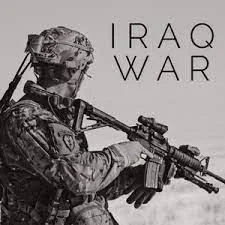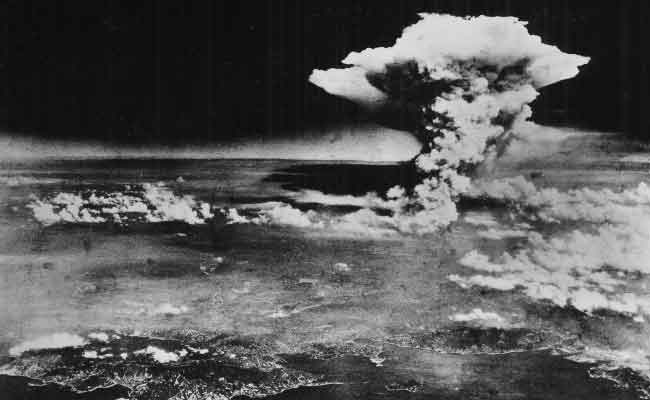The Iraq War: The Iraq War, which began with the US-led invasion in 2003, is one of the most significant events in modern history. Its impact transcended national borders, reshaping global politics, economics, and security policies. The war not only changed the fate of Iraq but also profoundly affected the wider Middle East and the world. Below, we explore key aspects of the significance of the Iraq War.
Shifting global power dynamics:
The Iraq War marked a pivotal moment in the post-Cold War era, as the United States sought to establish its dominance in the Middle East. Under President George W. Bush, the invasion was justified under the premise that Iraqi dictator Saddam Hussein possessed weapons of mass destruction (WMDs) and posed a threat to global security. Although no such weapons were found, the invasion demonstrated the United States’ willingness to use military force to reestablish regime change and establish control over strategic territories.
The outcome of the war dramatically altered global power dynamics. America has expanded its influence in the Middle East, but it has also come at a cost, both human and financial. The conflict has deepened anti-American sentiment in the region, led to the emergence of insurgent movements, and destabilized neighboring countries.
The Rise of ISIS and Regional Destabilization of Iraq War:

One of the most significant long-term consequences of the Iraq War was the rise of the Islamic State (ISIS). The invasion dismantled the Iraqi state structure and led to widespread sectarian violence. As security deteriorated, extremist groups found fertile ground to thrive.
ISIS emerged from the power vacuum created by the collapse of the Iraqi military and the dissolution of its government. The group seized large swaths of Iraq and Syria, declared a caliphate, and became a major global security threat. The Iraq War inadvertently set the stage for the rise of ISIS, which brought new levels of violence and instability to the region. This led to further military intervention and global counterterrorism efforts.
Humanitarian and social impact of Iraq War:
The humanitarian cost of the Iraq War has been staggering. Estimates suggest that millions of civilians have lost their lives, millions have been displaced from their homes. The country’s infrastructure has been severely damaged, and many Iraqis are still dealing with the consequences of the conflict, including poverty, loss of access to basic services, and psychological trauma.
In addition, the war has exacerbated sectarian tensions, dividing the Sunni, Shia, and Kurdish populations. The resulting civil war and ethnic violence have left deep scars on Iraqi society, making it difficult for the nation to rebuild itself even after years of war.
Economic impact of Iraq War:
The economic consequences of the Iraq War have been felt both within the United States and globally. The war has cost trillions of dollars and has been largely financed through debt, which has contributed to the United States’ national debt. The financial strain of the conflict has led to significant debates about the allocation of resources and the prioritization of military spending over domestic needs.
Globally, the war significantly affected the oil market. Iraq, a major oil producer, saw its oil industry disrupted, which affected global oil prices. The war created uncertainty in the global economy, as investors withdrew from the region due to increased risk.
Legacy of the war on international relations:
The Iraq War brought about changes in international relations, particularly regarding the concept of military intervention and the role of international law. The lack of evidence to support the WMD claim and the absence of a clear UN mandate for the attack led to widespread criticism of the United States’ unilateral decision to invade Iraq.
This had lasting implications for future military interventions. Nations now considered the issue of intervention more carefully, and the perceived illegality of the war made international diplomatic efforts to resolve the conflict more explicit. In addition, the Iraq War reshaped relations between the United States and its allies, with some countries supporting the invasion, while others, such as France and Germany, opposed it.
Education and ongoing debate of Iraq War:

The Iraq War has sparked intense debates about the use of military force, foreign policy, and nation-building. Critics argue that the invasion was based on flawed intelligence and an unrealistic vision of nation-building, which ultimately led to chaos and suffering. Supporters argue that despite the unintended consequences, removing Saddam Hussein was necessary for regional stability.
In the years since the invasion, lessons learned from the Iraq War have influenced U.S. foreign policy, military strategy, and global peacekeeping efforts. The need for multilateral cooperation, respect for international law, and the importance of post-conflict reconstruction have become central elements of modern military intervention.
The significance of the Iraq War is immense, affecting not only Iraq but also the greater Middle East, the United States, and the wider world. It reshaped geopolitics, led to the rise of extremist groups like ISIS, and caused widespread human suffering. The war has left a lasting legacy that continues to shape discussions about military intervention, international relations, and the future of global peace and security. The lessons learned from the Iraq War will influence foreign policy decisions for decades to come.
Read Also: The Kargil War
![]()





